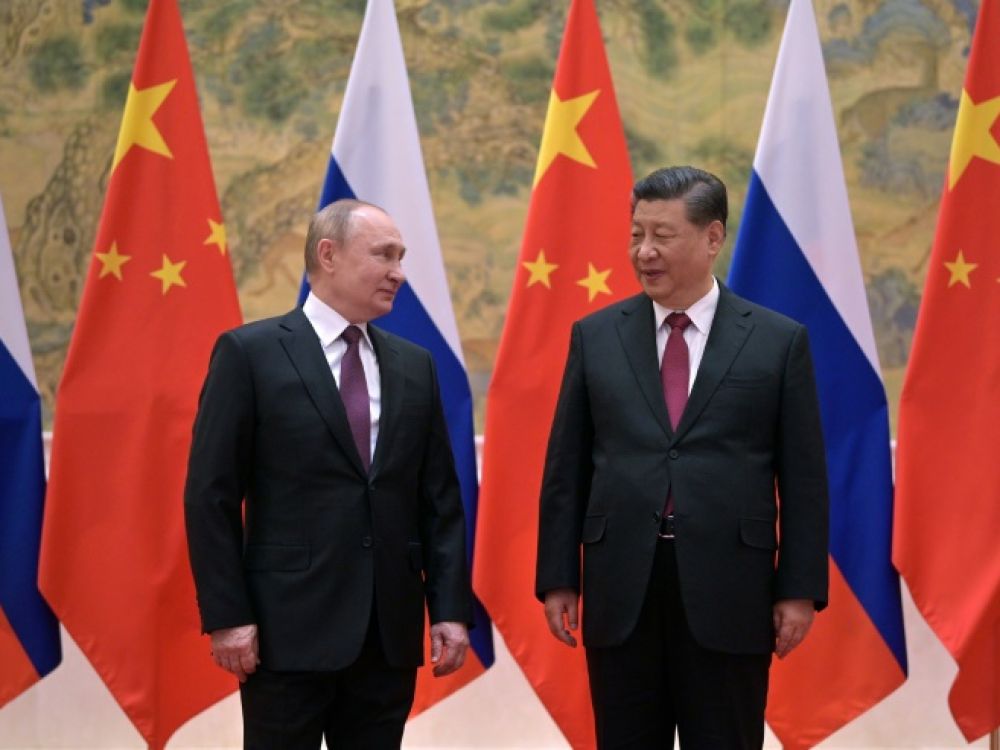“In Ukraine, Putin and Ji are called ‘Pussy’ for ‘Pou’ and ‘Xi’!” The situation is serious, but Ukrainian Ambassador to Japan Sergei Korsunsky is in a playful mood at his office in Tokyo this Thursday, February 24th. With these somewhat rude words, this senior diplomat summarizes the hell pincers created by two authoritarian permanent members of the Security Council, Vladimir Putin and Xi Jinping. One that would shut down Europe and Asia and prevent its diplomats from falling asleep. The Japanese in particular: “Russia” means “China”; When they say “Ukraine” they also mean “Taiwan”, a democracy that Xi Jinping wants to forcibly reunite in the sinosphere if necessary. Moreover, Russian troops concentrated on the Ukrainian border came in part from the Chinese border on the other side of Russia.
Today, Ukraine; Tomorrow, Taiwan
This thesis is thriving: in the modern version of the German-Soviet pact, Russia and China have formed an alliance like thieves in an exhibition to redraw parts of their influence. Today, Ukraine; Tomorrow, Taiwan. What is the value of this theory? The deal between Xi Jinping and Vladimir Putin is not new. They have met almost 40 times since Xi Jinping came to power. Around Japan, the Chinese and Russians have been increasing joint military maneuvers at sea and in the air for years.
The two regimes, on the other hand, have the least interest in neutralizing each other in these theaters, and they are seen referring to the United States as a common enemy. This friendship turned into an indirect occupation agreement for a few weeks. At the end of the meeting between the two Chinese and Russian leaders, at the start of the Olympic Games in Beijing, Japan, Japan noticed China’s first emergence against NATO expansion, although it had no direct impact. How else to interpret this position as a sign of friendship with Vladimir Putin? Japan also noticed that Japan waited until the end of the Olympics to launch its offensive. And from? China is careful not to take a side, not to condemn Russia, and refuses to talk about “invasion.” Not the Chinese word against Russia And so on If China attacks Taiwan tomorrow, not a single Russian word, especially in Tokyo, is feared.
Such forces cannot be “allied.”
This thesis has severe limitations. As a precursor, such powers could not be “coalition”. China respects the territorial integrity and sovereignty of other countries only to protect it from the danger of secession in its own territory. “By the nature of these authoritarian forces, they do not have partners whom they consider equal, but rather slaves,” said James D. Snyder, an expert in Russian-Japanese relations. Brown mentions. China does not want to be trapped in Europe or Russia in Asia. Finally, the two countries have their own border conflicts, where the Russians, in terms of population, are languishing against the Chinese. What’s left? Uncertainty. “The post-war democratic order is declining. There is no structure to replace him, ”laments Sergei Korsunsky alone in his office.

“Proud explorer. Freelance social media expert. Problem solver. Gamer. Extreme travel aficionado.”

